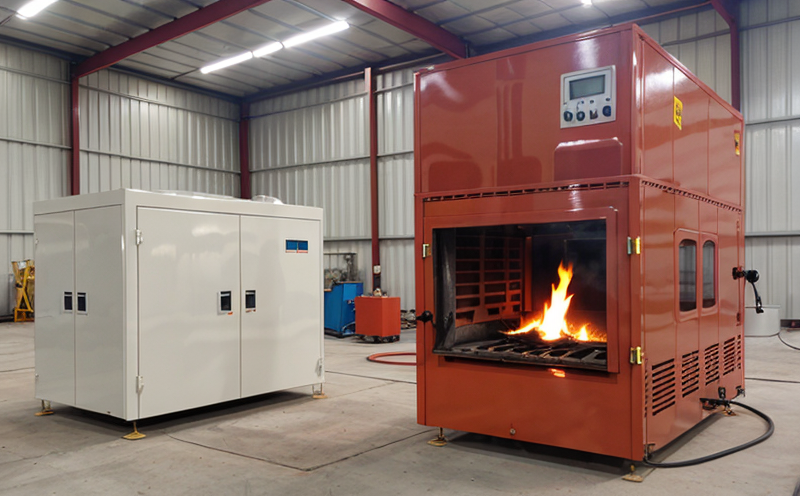ISO 75 Heat Deflection Temperature of Plastics
The ISO 75 standard is a widely recognized method used to determine the heat deflection temperature (HDT) of plastics. This test evaluates the point at which plastic specimens begin to deflect under specified conditions, providing critical insights into the mechanical properties and thermal stability of materials.
Heat deflection temperature testing is crucial in industries where components are exposed to high temperatures or undergo significant stress during operation. The HDT is a key indicator of the material’s ability to maintain structural integrity while operating under heat. This test helps ensure that materials meet stringent quality control standards and are suitable for specific applications.
The ISO 75 method involves placing a specimen in a water bath and subjecting it to increasing loads until deflection occurs. The temperature at which this happens is recorded as the HDT. For accurate results, specimens must be carefully prepared according to standard procedures. This includes ensuring uniform thickness, flatness, and orientation. The test apparatus typically consists of a heating chamber, load cell, water bath, and specimen holder.
The ISO 75 method covers various types of plastics, including thermoplastics and certain thermosetting materials. However, it is important to note that the standard does not apply to all polymer types, such as some fluoropolymers or elastomers. For these cases, alternative methods may be required.
Understanding the HDT is essential for material selection in industries like automotive, aerospace, and electronics, where components must endure high temperatures without failing. Compliance with ISO 75 ensures that products meet international quality standards and are reliable under real-world operating conditions.
The test results can also be used to predict service life by estimating the temperature at which materials will deform due to heat stress. This information is valuable for designing parts that can withstand prolonged exposure to elevated temperatures without compromising performance or safety.
- Environmental Sustainability: By ensuring that plastics meet stringent HDT standards, industries can select materials that are more resistant to environmental conditions and have longer service lives. This reduces the need for frequent replacements and extends product lifespan, contributing positively to sustainability efforts.
Benefits
The ISO 75 heat deflection temperature test offers numerous benefits to industries that rely on high-performance plastics. Some of these advantages include:
- Quality Assurance: Ensures that materials meet international quality standards and are reliable under real-world operating conditions.
- Informed Decision-Making: Provides critical insights into the mechanical properties and thermal stability of materials, enabling informed material selection for specific applications.
- Risk Mitigation: Helps identify potential issues early in the design process, reducing the risk of product failures due to inadequate material performance.
- Cost Efficiency: By selecting suitable materials upfront, industries can avoid costly rework and downtime associated with failed products.
In summary, ISO 75 heat deflection temperature testing is a vital tool for quality managers, compliance officers, R&D engineers, and procurement professionals. It ensures that the materials used in manufacturing meet stringent standards, leading to more reliable and sustainable products.
Eurolab Advantages
At Eurolab, we offer comprehensive ISO 75 heat deflection temperature testing services tailored to meet your specific needs. Our expertise and state-of-the-art facilities ensure accurate and consistent results that you can trust.
- Expertise: Our team of professionals has extensive experience in material testing and quality assurance, providing you with the highest level of service.
- Accurate Results: Using precise equipment and rigorous adherence to international standards, we deliver reliable test results that are essential for decision-making.
- Comprehensive Services: We offer a full range of testing services, including sample preparation, calibration, and data interpretation, ensuring a seamless testing process.
- Customer-Focused: Our customer service team is dedicated to understanding your unique requirements and providing personalized support throughout the testing process.
Choose Eurolab for your ISO 75 heat deflection temperature testing needs. Trust us to deliver accurate, reliable results that meet international standards and ensure product quality.





